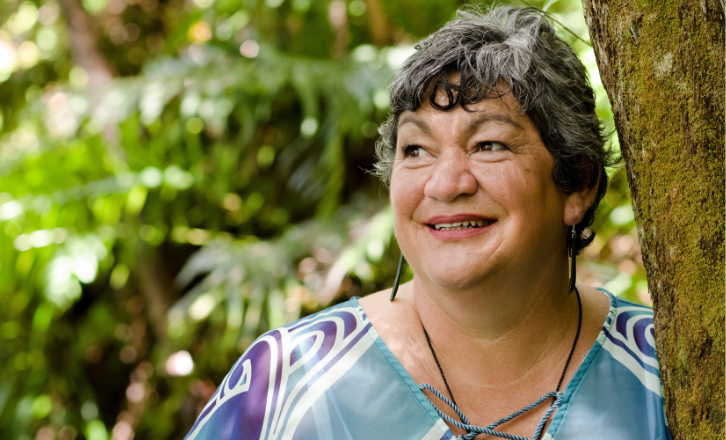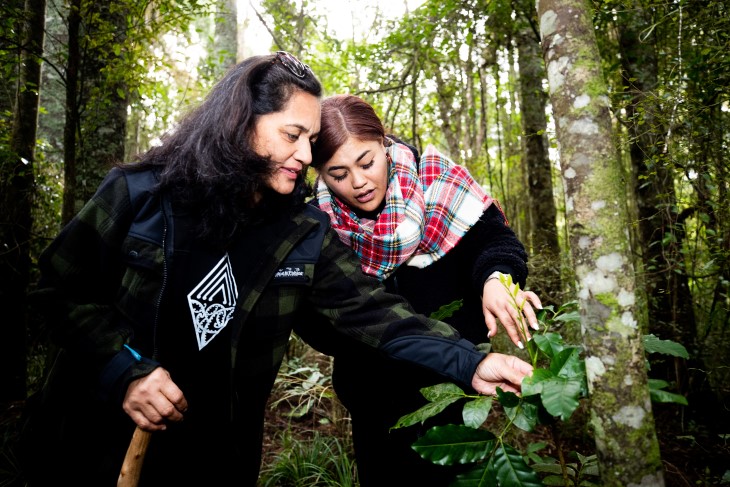Teresa’s story: Fulfilling her promise
After losing her Dad in 2014, Teresa Hart returned home to help deliver rongoā Māori for the people of Te Tai Tokerau (Northland). “For ACC to recognise rongoā Māori, it has given the mana back to our people.”
For Teresa Hart providing rongoā Māori for Northlanders is not just her job, it’s her purpose.
Teresa, the Kaiwhakahaere for Te Houtaewa Māori Charitable Trust, made a promise to the kuia and kaumatua (grandparents). They knew of her purpose, long before it was a reality.
As a child, her grandmother shared a vision for her.
It was only activated consciously 44 years later when her father passed away.
The vision was for her to position rongoā Māori as a reality in Primary Health in the Far North.
“As a kaitiaki (guardian) to rongoā Māori, my actions are deliberate and purposeful,” she says.
“When it comes to having one of our greatest taonga (treasures) offered to the people of Aotearoa.
“It comes with a lot of responsibility. It has a long history. It is characterised by a transmission of knowledge and diversity of practice. There is an emphasis on the spiritual dimension of health.”
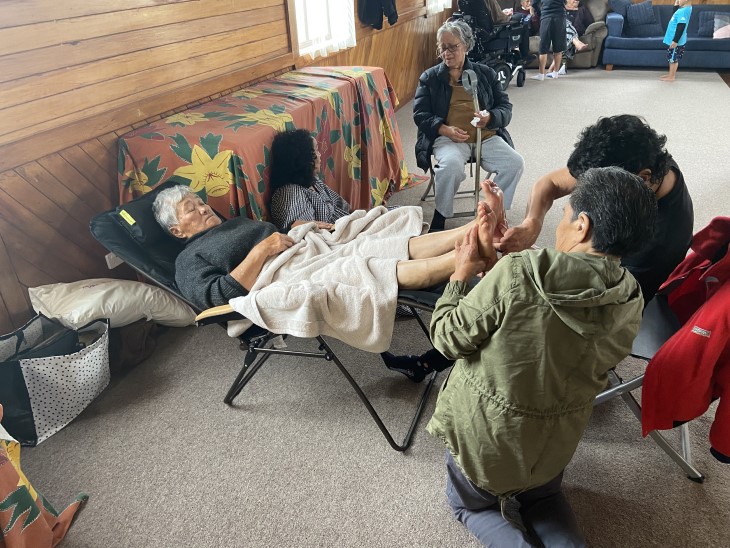
Teresa says rongoā Māori is growing in popularity in Northland.
Don’t forget your roots
Teresa says rongoā Māori (traditional Māori healing) was developed out of the ancient cultural traditions of tupuna Māori (ancestors).
Rongoā Māori is positioned into a western model with primary health and secondary care sector as a dual provision. Teresa says they must have disciplines to ensure that this will be here for our mokopuna apōpō (grandchildren).
“We have a duty of care to ensure that this is the best practice served by practitioners that are from the rongoā whakapapa (genealogy),” she says.
“Rongoā Māori is part of our DNA. In our contemporary times, it is a real connection to timely events that now demonstrates in my services all the teachings from yesterday.”
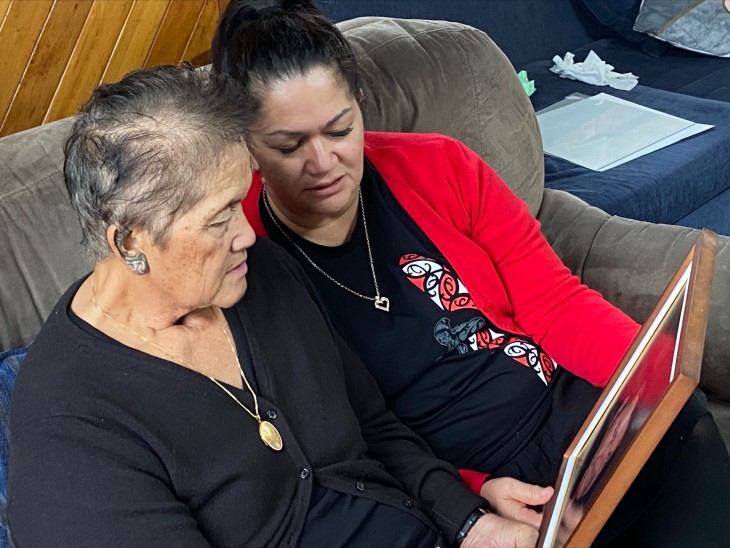
Teresa Hart and her mum Maraea Hart
Teresa is of Ngāti Hine a Hineamaru. She returned home in 2013 from Melbourne to support and spend precious time with her whānau.
“Sadly, I didn’t have enough time to be that voice for my dad’s care. But we had a lot of planning and conversations to prepare me,” she says.
“He had a plan for me, to keep the whānau (family) together and to look out and after many more people in the community going forward.
“What we learn in our deepest grief helps us to overcome and to be there to help others.”
Treating people through COVID-19
Teresa’s practice leads Te Houtaewa Māori Trust. This is the Northland District Health Board (NDHB) Pilot Project for rongoā Māori in Kaitaia Hospital.
They have a rongoā service delivery agreement until June 2023.
She says rongoā Māori is growing significantly in awareness. She believes it has a natural place in health and wellbeing.
“Partially because of COVID-19 our community in the Far North are dealing with experiences that they haven’t had to face before,” she says.
“The privilege to help and witness joy lifts our wairua (spirit) to another level.”
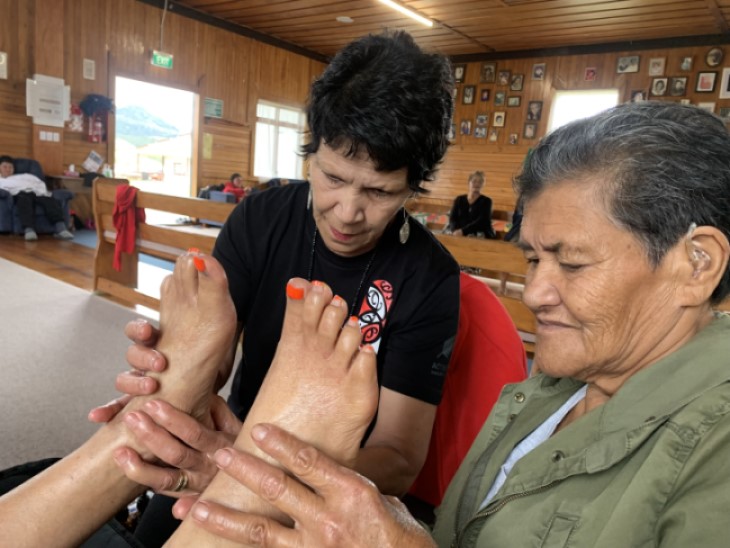
We have 79 ACC-registered rongoā Māori practitioners from Kaitaia to Dunedin
Their practitioners care for the community. This includes the kuia and kaumātua, hapū māmā, whānau members with underlying medical conditions such as respiratory issues and other long-term conditions.
It also includes whānau undergoing treatment for cancer and blood conditions, health frontline workers.
Their clinic has helped as frontline health workforce and essential workers in the community.
One of the barriers in delivering rongoā Māori at Kaitaia Hospital was the demand for service and room availability.
They were practicing in Te Waka Hauora, but that is community borrowed space (the marae) at Kaitaia Hospital.
Neta Smith is the manager of Kaitaia Hospital. She helped Teresa set up a cabin at the front entrance of the hospital which is dedicated to rongoā Māori.
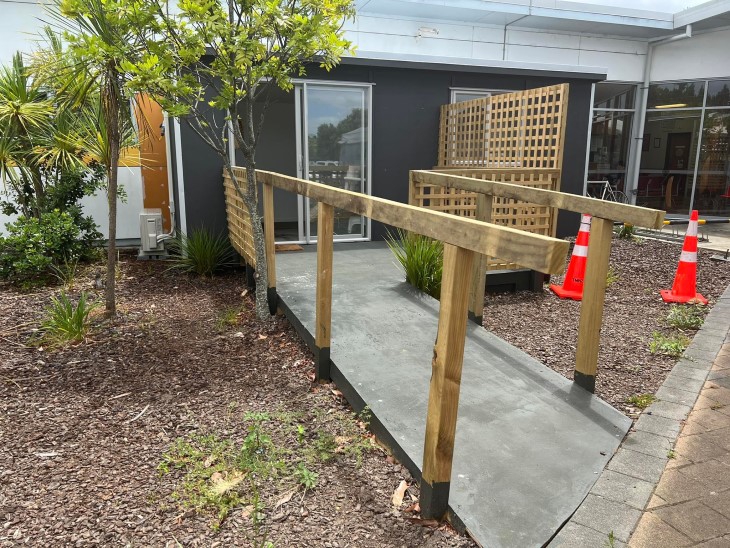
The cabin that was placed in front of Kaitaia Hospital so they could keep delivering rongoā Māori
“We looked at our operation in the new world with COVID-19 and we wanted to be able to operate regardless of the Alert Level, because we are essential service providers,” she says.
“We now can start engaging with more rongoā practitioners and operate up to six days a week face to face in addition to Telehealth services.
Teresa says that delivering rongoā Māori is an essential service for many people.
“We need to be able to serve our people at all levels and ensure they feel safe when they come into that space,” she says.
“We don’t want to be in a situation where COVID-19 hits and we are pushed away. We have placed ourselves at the frontline with all other healthcare providers.”
“Confirmation from ACC is important”
Used by Māori in Aotearoa for centuries, rongoā remains a popular healing option.
Since June 2020, rongoā Māori has been offered as a service by ACC.
If ACC agrees to provide cover for a person’s injury, the person can ask ACC to pay for rongoā Māori as part of their rehabilitation.
Teresa says it’s “confirmation” that ACC has recognised rongoā Māori.
“It acknowledges that rongoā Māori contributes to the care and recovery of that person,” she says.
“I’m experiencing an overwhelming expression of interest to be part of that, both in our practitioners and our clients.”
As at the end of July 2022, we had approved rongoā Māori for around 2,500 claims and funded more than 16,600 sessions.
One in five of those kiritaki (clients) hadn’t previously received other forms of ACC care or treatment before benefitting from rongoā.
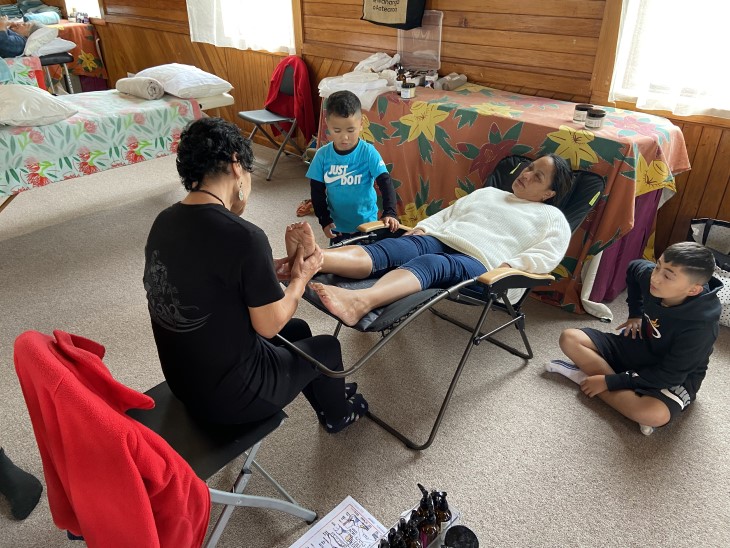
Of those accessing rongoā Māori through ACC, 63 percent are Māori and 70 percent are female
Making a difference for Māori
Michelle Murray is our Tumu Pae Ora (Chief Māori and Equity Officer).
She says the rongoā Māori service is a programme by Māori, with Māori, for Māori and available to people of all ethnicities.
“We have enabled access to rongoā Māori services to improve equity of choice, access, experience, and outcomes for Māori,” says Michelle.
“We recognise we need to offer a choice of support services that reflect tikanga Māori (customs) and te ao Māori (the Māori world) to uphold our Te Tiriti o Waitangi responsibilities.”
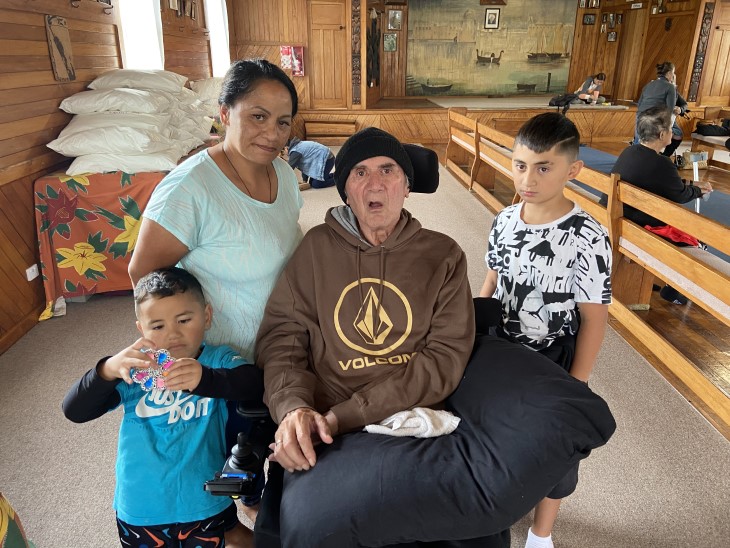
Charlie Adams used rongoā Māori to recover from a traumatic brain injury
Michelle says our data shows Māori are more likely to sustain a serious, life-changing injury, but less likely to access ACC services.
“We want to bring more Māori to ACC to support better health outcomes; enabling tikanga-aligned services is one way we can do that,” says Michelle.
“It’s positive to see that two thirds of those using our rongoā Māori service are Māori.”
ACC data shows that on average 85 percent of rongoā Māori claims (excluding serious injury and sensitive claims) did not require ongoing financial support beyond the first six months following the injury/accident.
Of the clients who used the service, less than one percent have lodged a subsequent claim (for the same injury site) to date.
Teresa says relationships are critical to achieving positive health outcomes in the Far North.
“A lot of Māori simply don’t understand the options that are available to them, so we need to build that awareness,” she says.
“The message is getting out to all ages about the benefits of rongoā Māori and there is more to come. We are focused on getting our people the help and the support they need.”
ACC and rongoā Māori
- ACC data shows that Māori are more likely to sustain a serious, life-changing injury but are 25 percent less likely to access ACC services.
- As at the end of July 2022, we had approved rongoā Māori for around 2,500 claims and funded more than 16,600 sessions.
- One in five of those kiritaki (clients) hadn’t received other forms of ACC care or treatment before benefitting from rongoā.
- Of those accessing rongoā Māori through ACC, 63 percent are Māori and 70 percent are female.
- Rongoā Māori is available to clients on request and can be used as standalone care or in conjunction with other treatment.
- We have 79 ACC-registered rongoā Māori practitioners from Kaitaia to Dunedin.
For more information on rongoā Māori visit:



